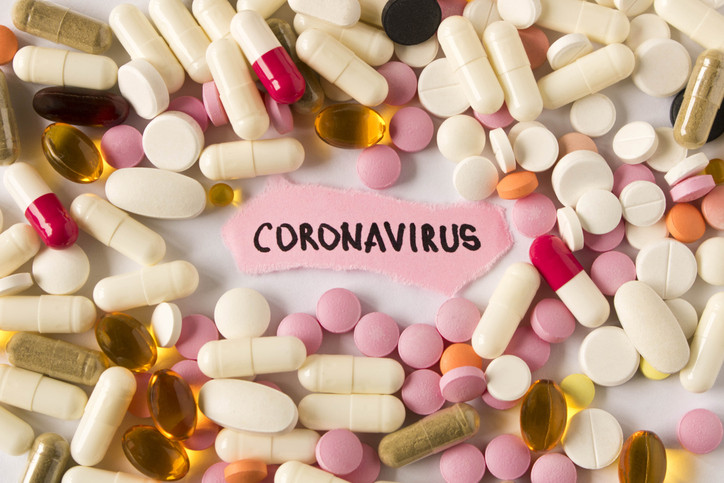
Zinc: What it does for the body, and the best food sources

Respiratory health harms often follow flooding: Taking these steps can help

Tips to leverage neuroplasticity to maintain cognitive fitness as you age

Can white noise really help you sleep better?

Celiac disease: Exploring four myths

What is prostatitis and how is it treated?

What is Cushing syndrome?

Exercises to relieve joint pain

Think your child has ADHD? What your pediatrician can do

Foam roller: Could you benefit from this massage tool?
Harvard Health Blog
Read posts from experts at Harvard Health Publishing covering a variety of health topics and perspectives on medical news.
Articles
Dental appliances for sleep apnea: Do they work?
Obstructive sleep apnea leaves people tired, but also puts them at risk for other health problems. Not everyone with sleep apnea can use an airway pressure machine, and some may simply prefer not to. There are oral appliances available, but are they effective?
Terrified of needles? That can affect your health
No one likes being stuck by a needle, and it’s not unusual for a person to be afraid of needles. If it’s serious enough, this phobia can affect quality of life and overall health — an especially important concern with vaccination available for COVID-19. But there are ways to cope with the problem.
Life expectancy: How can we address uneven declines?
The COVID-19 pandemic helped lower life expectancy among all individuals in the US, and this impact has been worse in communities of color. Longstanding systemic failings lead to worse quality of life and poorer health in these communities, but we can all take steps to improve this situation.
Edibles and children: Poison center calls rise
As more states have legalized the use of marijuana and products derived from it, more children are being exposed. Children can't be trusted not to eat appealing-looking food items they may find, so it's up to adults to take precautions and make sure edibles are stored where children can't find them.
Pills and the planet: Environmentally-friendly steps for your medicine cabinet
The key factor causing climate change is greenhouse gas emissions, and the health care industry plays a significant role, with drugs and chemicals being the biggest contributor. While the benefits of medications to the world can’t be overstated, here’s how to balance the need for them with concern for the environment.
Diet, disease, and the microbiome
A healthy microbiome — the genes of tiny organisms living in the digestive tract — helps protect its human host from chronic diseases. Researchers do not yet fully understand the connection, but it appears that eating unprocessed plant-based foods allows the gut microbiome to thrive.
Want healthy eyes? What to know at 40 and beyond
While eye problems can affect people of any age, some conditions become more common after age 40. Some are normal, or at least expected; others are of greater concern and will require treatment. Here’s how to keep your eyes healthy and address certain problems.
Could COVID-19 infection be responsible for your depressed mood or anxiety?
Anti-Asian racism: Breaking through stereotypes and silence
Are antidepressants also pain relievers?
Antidepressant medications are frequently prescribed for chronic pain, particularly neck or low back pain and certain types of arthritis — though other treatments are usually tried first. An analysis of past research considered how effective antidepressants are for these types of pain, but the results are not encouraging.
Can some postmenopausal women with breast cancer skip chemotherapy?
Advances in breast cancer research have led to more personalized treatments, based on subtyping and more sophisticated testing. A risk assessment test can predict that some women do not need chemotherapy but will benefit from hormone therapy, and who might benefit more from both treatments.
Stress may be getting to your skin, but it’s not a one-way street
In addition to everything else associated with stress, it can have negative effects on the skin, and can also aggravate certain skin conditions. But skin and hair also produce stress-inducing signals that can travel back to the brain, adding to psychological stress and perpetuating a stress cycle.
The art of a heartfelt apology
If you have upset someone, the best way to rectify the situation is by making a sincere, heartfelt apology. But just saying the words isn't quite enough: for an apology to be effective, it has to be genuine. You have to mean it, and you have to make that clear.
How is treatment for myasthenia gravis evolving?
Myasthenia gravis (MG) is a rare neuromuscular disease that impairs the transmission of nerve signals to muscles, causing temporary weakness of affected muscles. While treatment is complex, recently updated guidelines have added to the understanding of MG and are improving approaches to treatment.
Sleep, stress, or hormones? Brain fog during perimenopause
Black peer support: A role in mental health recovery
Peer support groups in mental health allow people with similar lived experiences to listen, share, and encourage one another. A Black peer support group created around race and culture as well as mental health may offer a safe space that allows people to address aspects of shared identity and experiences around racism with others who understand their daily reality.
Women, alcohol, and COVID-19
Do vitamin D, zinc, and other supplements help prevent COVID-19 or hasten healing?
Certain vitamins and supplements have long been promoted as having benefits for the immune system, which has led some to believe they may have similar effects on COVID-19 — and some doctors have been prescribing them. But so far, study results have not been encouraging.
An emerging treatment option for men with recurring prostate cancer after radiation therapy
Prostate cancer is often a multifocal disease, meaning that several tumors can be present in different parts of gland at the same time. Not all of these tumors are equally problematic, however. And it’s increasingly thought that the tumor with the most aggressive features — called the index lesion — dictates how a man’s cancer […]
Want to improve your memory? Get a good night's sleep!
Sleep is important for your memory, as the brain uses the time you are sleeping to process new information and consolidate it for later recall. If you are tired from a lack of sleep, it's more difficult to pay attention, and attention is necessary to good memory function.
Can fitness counter fatness?
Summer camp: What parents need to know this year
Harvard Health Ad Watch: Mitochondria do a lot for you — what can you do for them?
Mitochondria are the power stations in our cells that convert nutrients into energy, and research suggests that they play a key role in aging and immune function. Ads for a line of supplements claim that the product renews or replenishes mitochondria –– but is there any scientific proof of this?

Zinc: What it does for the body, and the best food sources

Respiratory health harms often follow flooding: Taking these steps can help

Tips to leverage neuroplasticity to maintain cognitive fitness as you age

Can white noise really help you sleep better?

Celiac disease: Exploring four myths

What is prostatitis and how is it treated?

What is Cushing syndrome?

Exercises to relieve joint pain

Think your child has ADHD? What your pediatrician can do

Foam roller: Could you benefit from this massage tool?
Free Healthbeat Signup
Get the latest in health news delivered to your inbox!
Sign Up

























